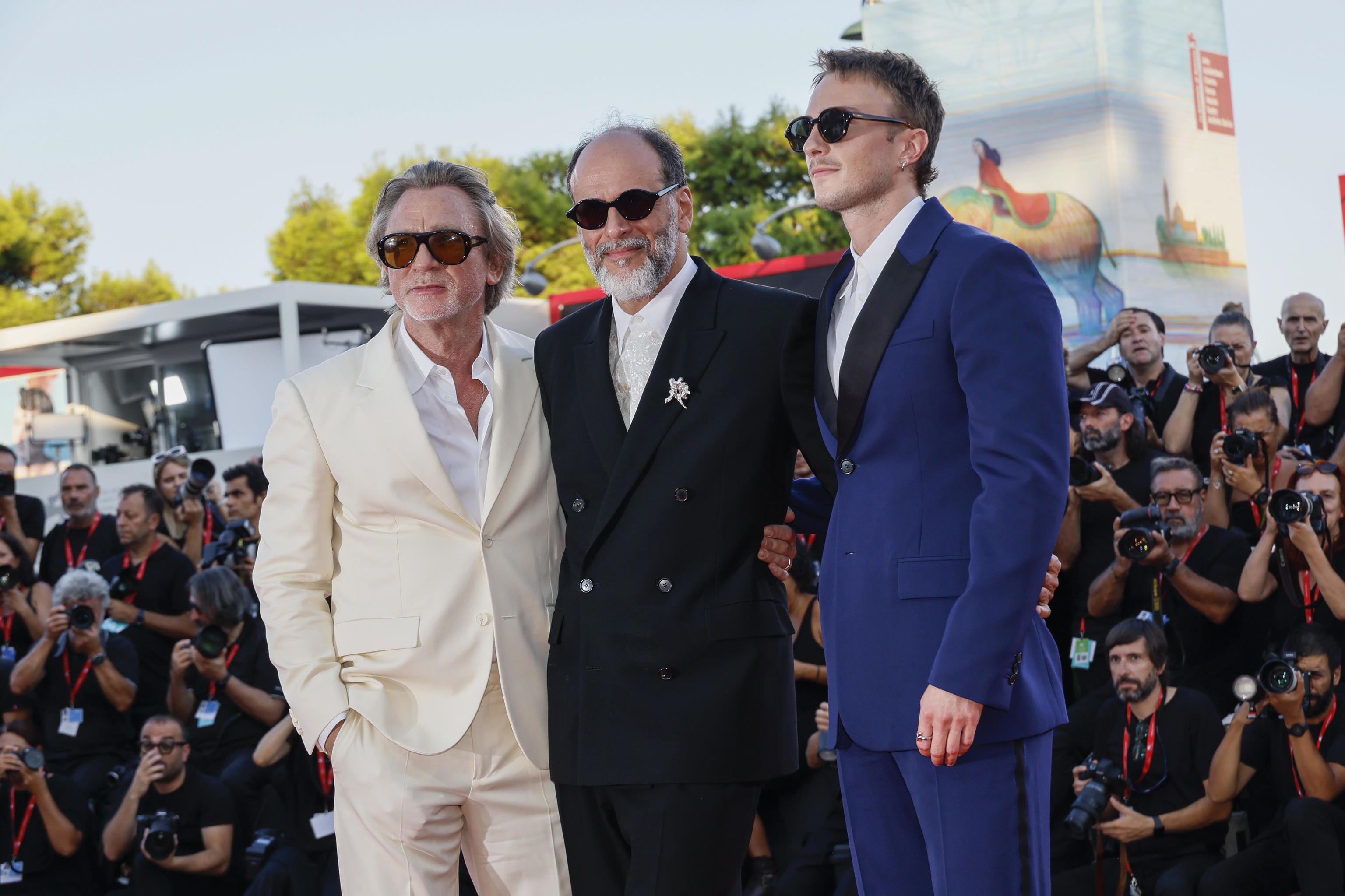In a moment of Unknown, the ghost film by Andrew Haigh, the characters talk about the convenience of using the word gay or queer. They do not argue, but it's close. It seems like a generational issue and is treated as such in the script. In Queer, the film by Luca Guadagnino recently presented in Venice, there are few options for debate because, in its ideology, it aspires to transcend it. It's about going beyond, about "uncorporalizing," as expressed by the protagonist. As if any attempt at definition necessarily meant a limit, a slavery, or an order, the idea is to abandon the categories forcibly imposed and place oneself on the other side. As passionately stated by Paul B. Preciado, perhaps "masculine and feminine are, ultimately, fictions, political and social fictions."
Let's say that, beyond the gender debate or issue, those are the coordinates in which the prodigious, as well as fierce, adaptation of William S. Burroughs' semi-autobiographical novelQueer moves within, proposed by the Italian with admirable freedom, exuberance, and a sense of excess. The film, to set the scene, tells the story of a 50-year-old American expatriate in Mexico City. He lives alone, licks his wounds alone, drinks (a lot) alone, and shoots heroin alone. And so it goes until one day he meets a young student newly arrived in the city. Then, he will feel like he is feeling again. And for that feeling, he will be capable of anything: from public humiliation to a desperate search in the middle of the jungle for the drug (ayahuasca or yagé, for reference) that will make him "uncorporalize" if necessary. The protagonist is gay. Or queer.
That Daniel Craig, formerly known as James Bond, is the protagonist is many things besides a very brilliant choice. What it is not, certainly, is a coincidence. Craig's image associated with the most normative of men licensed to be very heterosexual plays in favor of both the character and the actor himself. Both, fiction and reality, are disarmed with a forcefulness as frontal as it is exquisite. The sex depicted is sex with all its consequences. Without shame or shortcuts. It is homosexual sex first, but then much more: it is "uncorporalized" sex and, indeed, fully 'queer', fully Burroughs, fully complete.
Guadagnino plays with offering something like the counter-image of what was presented in Call me by your name. That was an exaggerated, luminous, and opulent story about the discovery of love and bodies. It was that and an invitation to eat peaches. This, on the other hand, is a murky, artificial, and terribly dark (though fun at the same time) tale about, to a large extent, decrepitude, the pain of defeats, and the claustrophobia of marked communities. And it is in that reflection where the film grows to almost mythical proportions. Or totemic.
The director - who confesses to being inspired by the classic The Red Shoes by Michael Powell and Emeric Pressburger - dematerializes (to paraphrase the definition proposed by the film) the image to something beyond mere paroxysm. It is a dream, a fable, and a psychedelic experience. If in the first of the three chapters (plus an epilogue) that structure the film we see Craig's character dancing to Come as you are by Nirvana, with a lack of sense of ridicule as high as his lack of scruples, later we will witness the literal dissolution of his body in a passionate embrace where the skin gets lost within the skin itself. Mind-blowing in its most accurate sense. It sounds strange and, indeed, it is much more so. In its very happy and monumental delirium, the protagonist will get lost in space in a final shot worthy of a Kubrick beyond Kubrick himself.
Indeed, the director never takes himself entirely seriously. And that's good. The journey he proposes is tragedy, but above all, it is discovery and, ultimately, liberation. There is no thesis in the political or poetic sense proposed some time ago by Virginia Woolf in 'Orlando.' And much less is it about opening a debate. Guadagnino's proposal is towards pleasure, towards the search for a conquest to come where there are no more genders than the complete "uncorporalization" of gender itself. And that through a cinema that we could well call completely "uncorporalized." We have arrived.
Harvest, a dark metaphor of capitalism (***)
After the exuberance of the Italian, the official section gave way to the Greek exuberance. Director Athina Rachel Tsangari proposes in 'Harvest' (based on the novel Harvest by Jim Crace) a sort of metaphor of modernity that is also a metaphor of capitalism. In the England of an imprecise Middle Ages, a lost village suddenly discovers what it means to appear on a map. Maps are like clocks. The former indicate the space of production and conquest, and the latter the time for productive work.
A cartographer with an artist's soul arrives in the village, ready to mark on paper the location of rivers, forests, the sea itself, and above all, the limits of property. Suddenly, the more or less balanced life is disrupted to organize the time and space of production. Capitalism has just arrived, and issues such as discrimination against women, racism, xenophobia, and poverty emerge. And it is not so much a metaphor as a perfectly graphic explanation.
The director of 'Attenberg' insists on her games of changing signifiers so beloved by colleagues like Yorgos Lanthimos (yes, she was a producer on his early works). But this time with a deployment of resources commensurate with ambition. 'Harvest' unfolds on the screen as an uninterrupted series of dazzling 'tableaux vivants' as dazzling at times as they are confusing in their worrying narrative nullity. At times, it surprises and excites, while at other times it only confuses. However, it always enlightens. The past, indeed, is the present.
